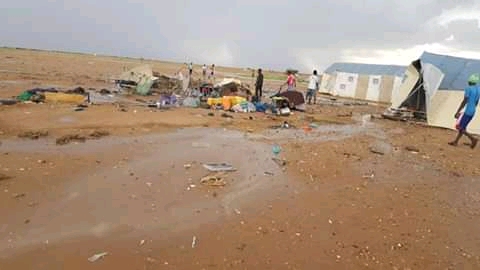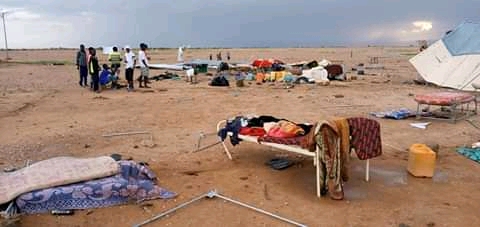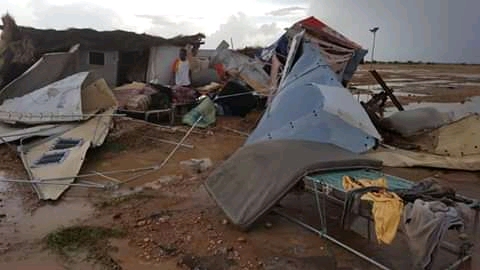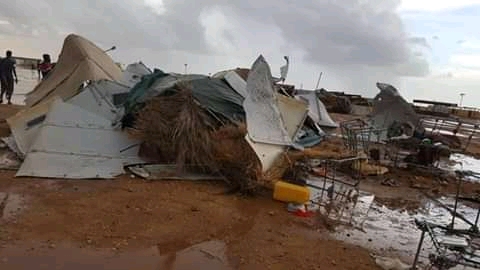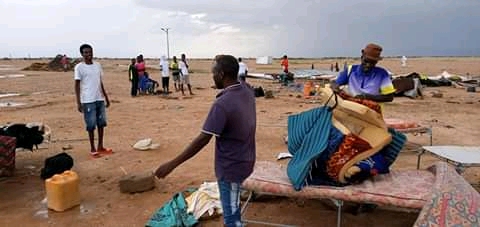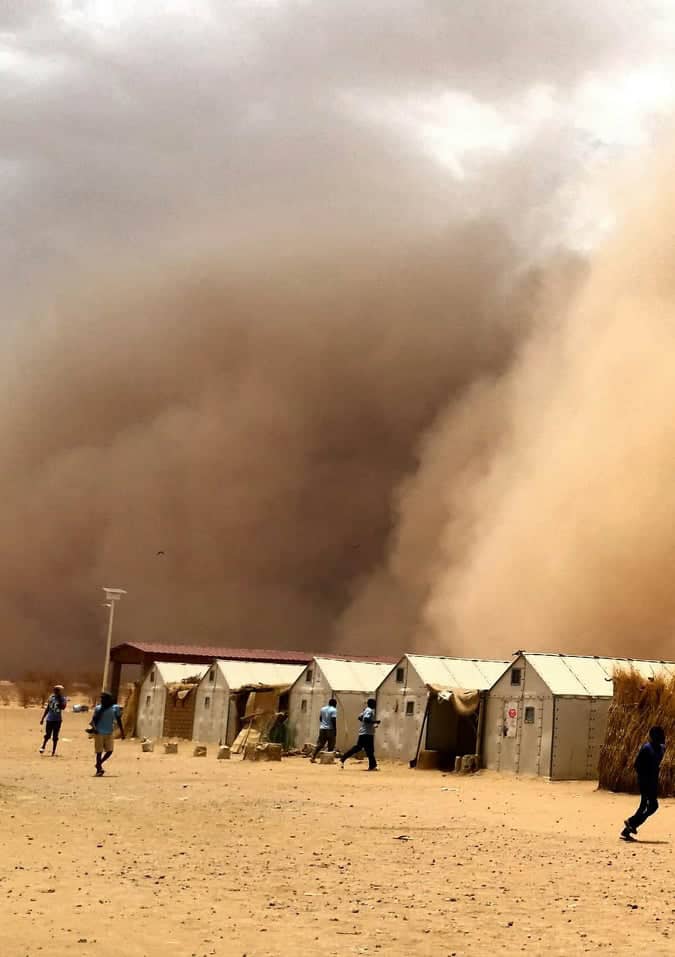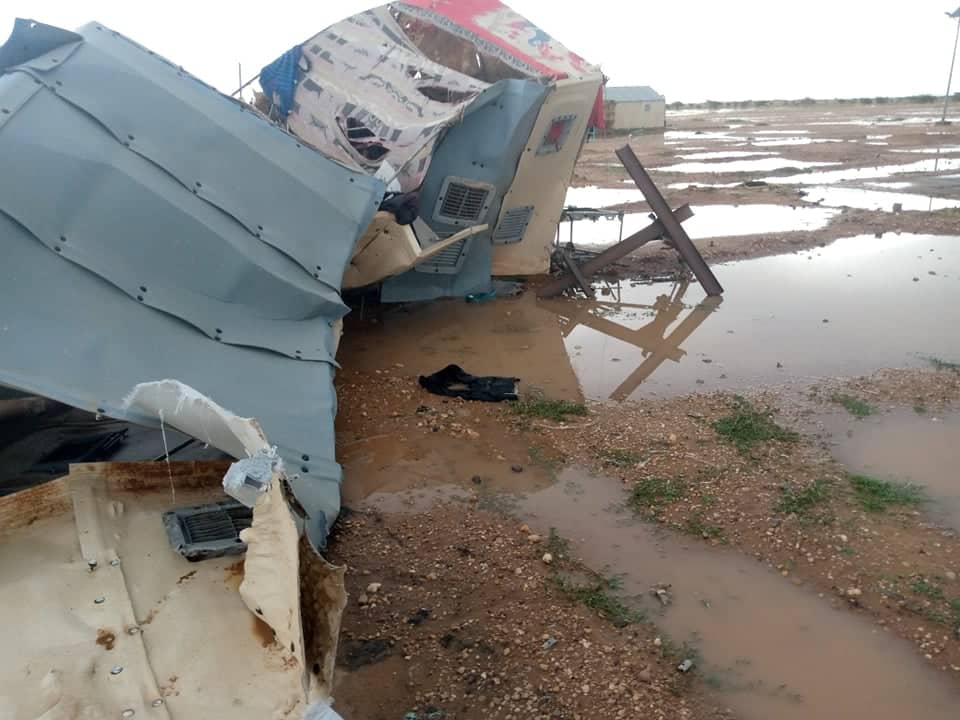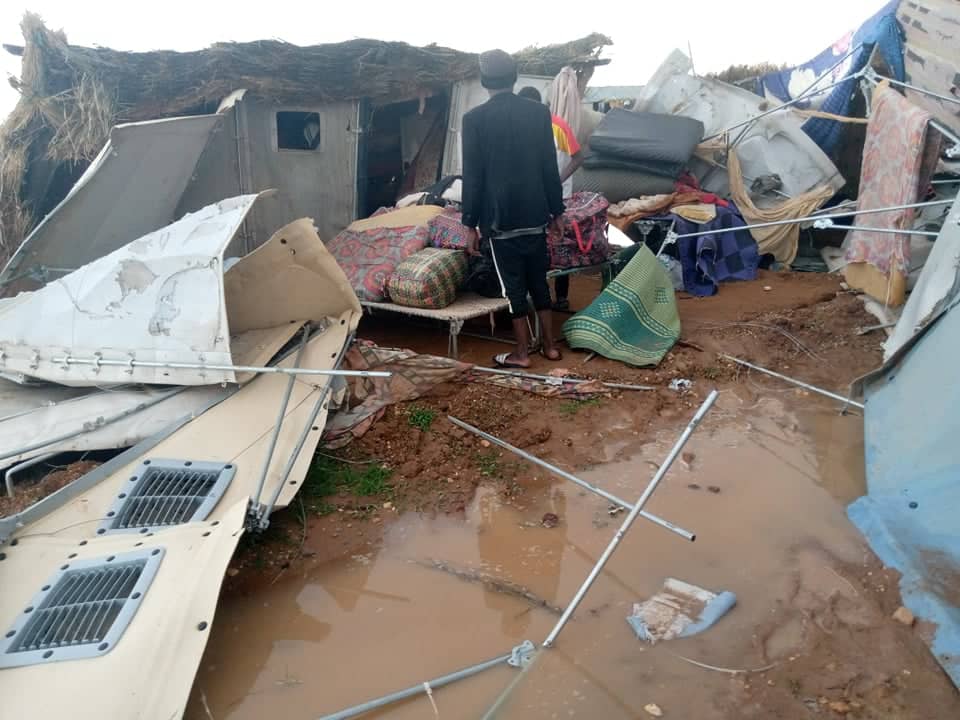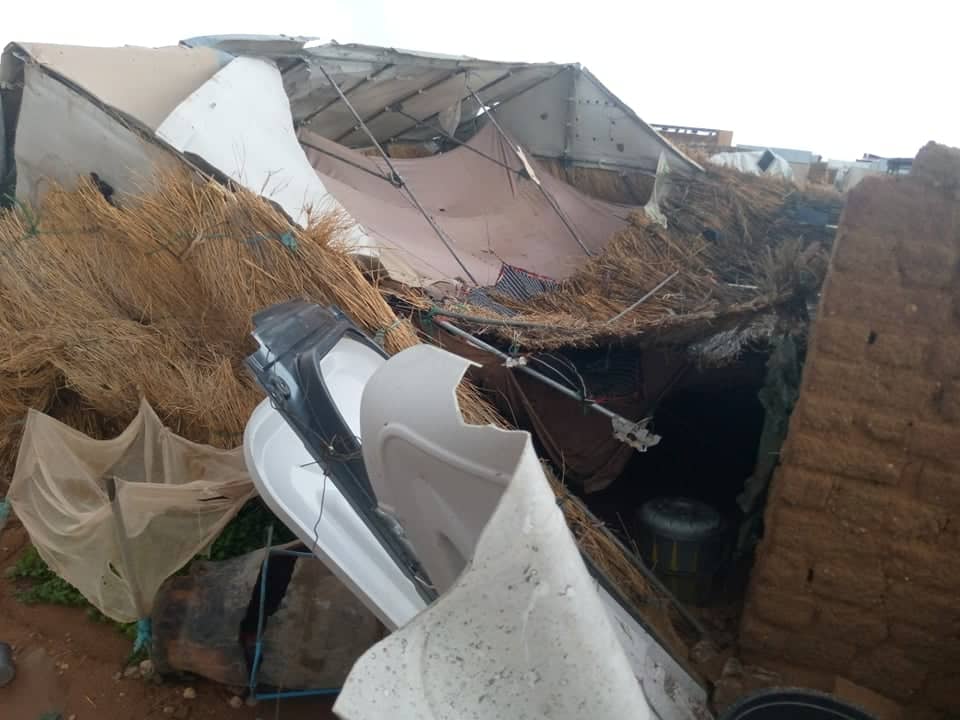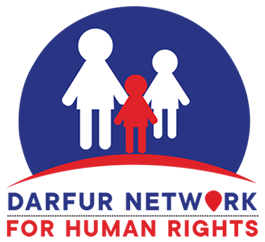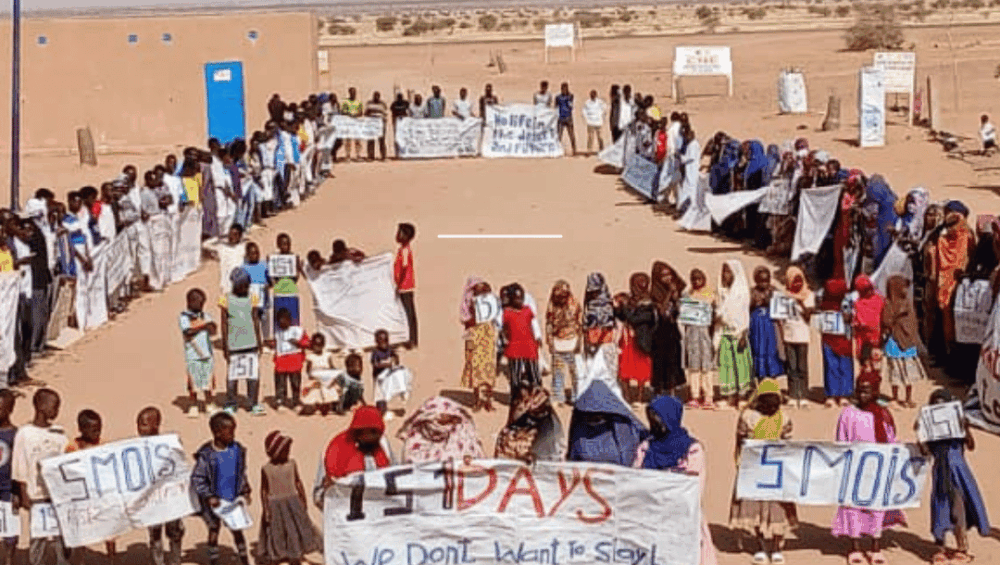Tucked deep in the Nigerien desert, 15 kilometres outside Agadez, a UN-run refugee camp built to offer safety now stands as a symbol of systemic neglect.
Sudanese refugees many of whom fled their homes as early as 2017 due to armed conflict, forced recruitment, economic collapse, and insecurity say they have been left in limbo for years. Having risked everything in search of protection and better opportunities, they now find themselves trapped in a camp with no access to jobs, formal education, or functioning healthcare. Some describe it as a prison in the open air.
Testimonies from inside the camp recount sick children turned away with nothing but painkillers, women sharing overcrowded tents with strangers, and men beaten or arrested for peacefully protesting by the Niger police.
Home to more than 1,500 Sudanese and other East and Central African nationals, the Agadez camp is buckling under worsening conditions. Aid groups warn that dwindling services and mass deportations from Algeria are pushing the camp toward collapse.
UNHCR has acknowledged the growing unrest, following weeks of peaceful protests by Sudanese refugees demanding dignity, safety, and the chance to rebuild their lives.
For many, life in the camp has become a cycle of waiting for food, for medicine, for answers. Refugees say basic services have deteriorated rapidly over the past three years, with monthly food assistance now capped at $8 per person.
Shelter is another pressing concern. Fatima (name changed for privacy), who left South Darfur’s Nyala in 2023 after her neighbours and relatives were killed when war broke out, arrived at the camp with her husband and five children. They now share a single room. She says she developed pressure after arriving, and now one of her daughters suffers from it too. “There is a clinic in the camp, but it is often closed,” she says. “Sometimes we meet a doctor, but they just give us painkillers.”
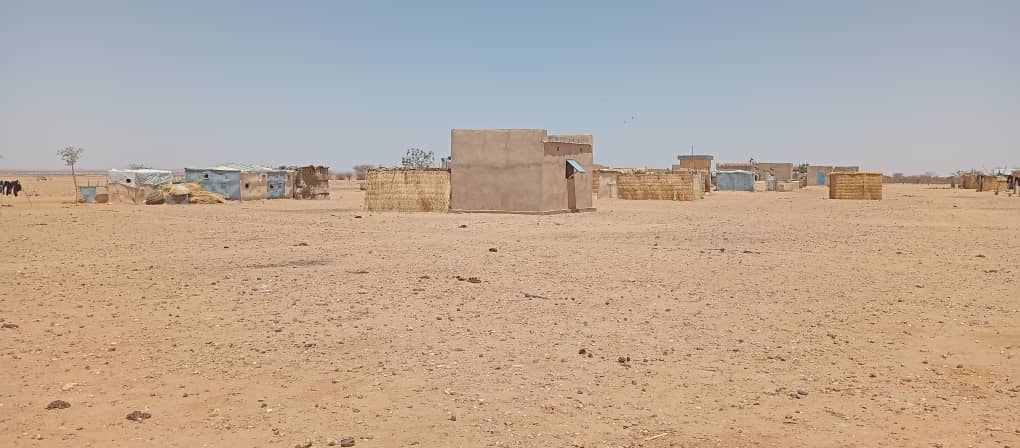
Below is a gallery of images highlighting the current state of the camp and the harsh environment refugees endure daily.
Abkar, originally from Kasir in South Darfur, fled after his family was targeted by RSF soldiers who claimed a cow from his farm had destroyed their tomatoes. He was beaten and left under a tree. His four-year-old son has been sick for months and still cannot walk. Despite repeated visits to the clinic, there has been no diagnosis or treatment. “They keep giving him Panadol,” Abkar says. “He is still sick. They have never explained what is wrong.”
Education, like healthcare, is nearly absent. Mohammed, a former teacher from El Fasher in North Darfur, fled after his area initially under Joint Forces control came under heavy attack by the Rapid Support Forces (RSF). His children now attend local schools in Niger but struggle with the language barrier. “They don’t understand French or the local language. They come home defeated,” he says.
Other families have no access to schools at all. Fatima says the younger children attend a nearby class, but the teacher “makes them sleep and play.”
For adults, finding work is nearly impossible. Most refugees speak only Arabic and say they face discrimination from the surrounding community. “Even the citizens of Niger are jobless themselves,” says Mohammed. “It is not easy to get jobs.”
Security inside the camp has also raised alarm. On 25 March 2025, tensions escalated when eight Sudanese refugees — four men and four women — were arrested by local police. Refugees say the group had been peacefully leading protests and voicing concerns on behalf of the wider community. Their arrest has deepened fears of retaliation for speaking out.
Mustafa, who fled Kalma Camp in South Darfur in 2017 after refusing forced recruitment by the RSF, recalls a woman being beaten by police after asking for food aid. “There’s no one we can turn to, not even inside the camp,” he says.
Despite this, many continue to protest. Over the past year, Sudanese refugees have organised daily demonstrations inside the camp and on social media, demanding accountability, basic services, and the protection they were promised. UNHCR has acknowledged the unrest, but residents say little has changed.
Conditions have only worsened as Niger continues to receive thousands of deported migrants from Algeria. In 2024 alone, over 30,000 people were pushed across the border, many abandoned in the desert before being transferred to humanitarian centres like Agadez. Refugees say the camp’s already limited resources are stretched to the breaking point.
Now, many describe their lives as suspended.
“I want to go back to Sudan and work,” says Abdalla, who has been in the camp since 2018 and left Nyala due to lack of jobs and insecurity. “But I have not worked in eight years. I have no money. And I cannot live like this.”
Mohammed says the situation has pushed many to the edge. “We are suffering. There is no help, no education and no future here.”
Still, the refugees are not asking for more than the basics — food, safety, education, and a chance to live without fear. Many have called on humanitarian organisations to increase their presence in the camp and prioritise medical care, food support, and mental health services.
They have also expressed gratitude to the Niger government for hosting them and allowing UNHCR to establish the camp. But if resettlement or voluntary return is no longer possible, they say authorities must work with partners to offer a dignified solution.
Conclusion
After years in the Agadez camp, many Sudanese refugees say they no longer know what they are waiting for. Food assistance has shrunk, shelters are overcrowded, and children grow up without education or medical care.
As the Darfur Network for Human Rights (DNHR), we have documented the testimonies of refugees in Agadez and verified the conditions they are forced to endure. Based on this, we make the following urgent recommendations:
- To UNHCR and its partners: Immediately scale up humanitarian assistance in Agadez, particularly food distribution, health care, and mental health support. Clinics must be staffed and equipped to respond to chronic illness, trauma, and urgent medical needs.
- To the Nigerien government: While we acknowledge and appreciate Niger’s hospitality in hosting Sudanese refugees, we urge authorities to ensure the protection of all camp residents — including those peacefully protesting — and to address growing concerns about police violence and discrimination.
- To the international community: The situation in Agadez cannot continue to be ignored. There must be concrete pathways for voluntary repatriation, third-country resettlement, or local integration. Refugees deserve more than indefinite waiting.
DNHR remains committed to documenting these realities and advocating for accountability and dignity for all Sudanese refugees. These voices must not be silenced — they are asking for help, and they are still waiting.
